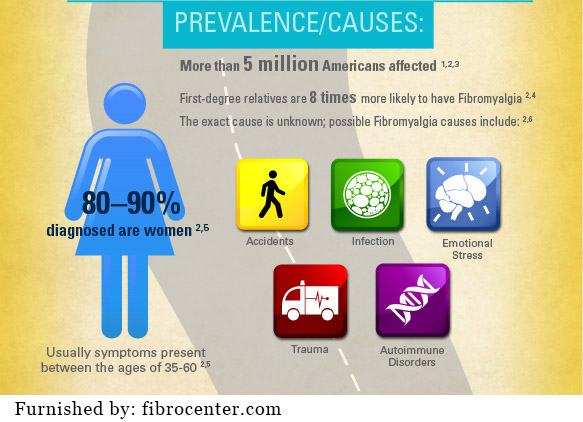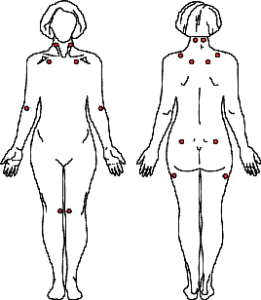 Fibromyalgia Fog
Fibromyalgia Fog
Do you find yourself with widespread pain to different joints and muscles in your body? If you’ve had these symptoms for a few months, it’s not all in your head. You could have fibromyalgia. It’s an inflammatory painful condition that affects your muscles, nerves and soft tissue. Symptoms are extreme tiredness, and musculoskeletal soreness and tenderness. For some, the pain is a dull, constant ache on both sides of your body from top to bottom. According to the Mayo Clinic, more women than men are prone to developing fibromyalgia.
Doctors might prescribe drugs to stop pain, headaches and inflammation, and address depression from fibromyalgia, but a better course of action is getting to the underlying trigger or cause.

Mystery Illness
There is no definitive cause for fibromyalgia. At Johnson Medical Associates, we find the underlying toxic or inflammatory causes that exacerbate fibromyalgia. A thorough evaluation is necessary. A blood and urine test is done to test for toxins. Also, we examine 18 tender points to see if a patient has pain when a doctor puts pressure on them. The American College of Rheumatology says those with pain in at least 11 of the 18 tender points, meet the guidelines for fibromyalgia. You could have an underlying condition that causes systemic inflammation, manifested by fibromyalgia. Once the infective agent is determined, then the specific treatment can be prescribed.
The Arthritis Foundation says fibromyalgia could be triggered by a traumatic brain injury, an infection to your central nervous system, catastrophic events like a car accident, and emotional trauma. When the brain is damaged by an injury, the brain tissue releases chemicals, which overreact to the body’s pain signals.
 Mold Factor
Mold Factor
Environmental factors like mold can be a big trigger for fibromyalgia. Mold gives off toxins which affect the cell’s mitochondria and how your nerves function, leading to inflammation and increased pain. Mold colonizes in your body, especially in your intestinal tract and nose. Humidity can contribute to mold growth inside your home or workplace. You can also carry in mold spores indoors on your shoes and clothing, and it can grow on carpeting.
Fibromyalgia symptoms can fluctuate, increasing in intensity when there are changes in the weather. When it’s rainy, you’re more susceptible to mold. Diet changes or food allergies can also be a factor. Avoid those foods that cause flare-ups. Fibromyalgia can be genetic if your mother or father have food allergies, or if mold sensitivity is common in your family. You may also have an immune deficiency.
 Hyperbaric Oxygen Therapy
Hyperbaric Oxygen Therapy
Hyperbaric oxygen treatments help heal damaged areas by increasing oxygen levels by tenfold and stimulating mitochondrial function so the body eliminates toxins. It’s more effective to treat the underlying pathology linked to the disease. HBOT speeds up the healing process and even helps regenerate damaged brain tissue. It eliminates abnormal brain activity. Your pain may also be reduced after treatment.
New Fibromyalgia Findings
According to Science Daily, a McGill University Health Centre study has shown bacteria changes in the gastrointestinal tracts of those with fibromyalgia. In the journal Pain, researchers found 20 different bacteria species in greater or lesser quantities in the microbiomes of patients with fibromyalgia than in the healthy control group. The findings could lead to a quicker diagnosis and help with a cure. Researchers are investigating whether gut bacteria changes are just markers of the disease or contribute to causing it.
 Profound Pain
Profound Pain
The National Institutes of Health has found some fibromyalgia patients tend to be perfectionists while others have low self esteem and compulsive disorders. This can affect personal relationships. Researchers found a high occurrence of emotional disorders, post-traumatic stress disorder and suicidal tendencies. If you’re struggling with fibromyalgia, don’t suffer anymore. Contact the professionals at Johnson Medical Associates for help. The pain is different for everyone, and some can suffer for years.
